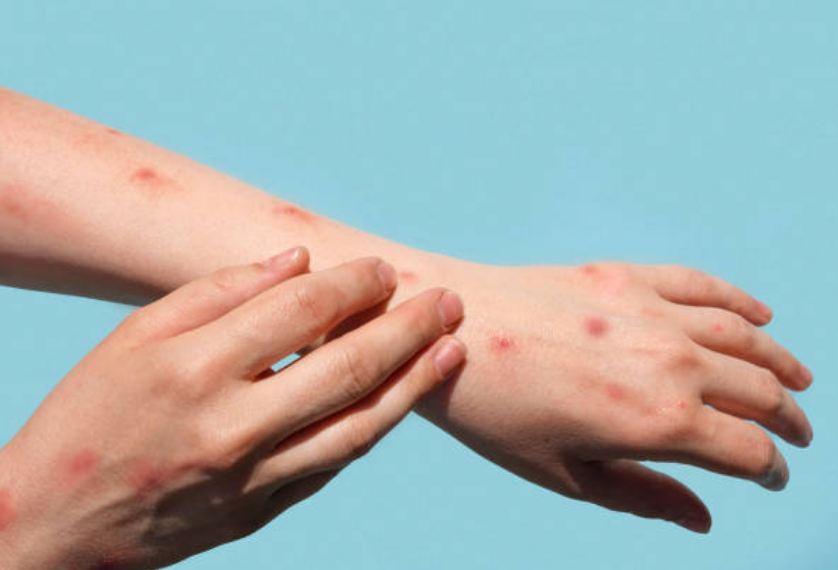The World Health Organisation (WHO) has allayed fears of monkeypox spreading in Zimbabwe, as the disease could be controlled if proactive prevention measures were taken.
Monkeypox is a viral zoonosis (a virus transmitted to humans from animals) with symptoms similar to those seen in smallpox patients in the past, although it is clinically less severe.
It is known to spread when there is close physical contact with an infected person, their clothing or bedsheets, WHO Health Systems Strengthening And Policies Adviser, Dr Stanley Midzi, advises people to take preventive measures when buying second-hand clothes that come in bales from Europe.
Making a presentation on Sustainable Development Goal Number three, which is Health and Wellbeing at a workshop hosted by the United Nations on developmental reporting underway in Mutare, Dr Midzi said monkeypox could be managed, as countries in Africa, where it usually occurred could contain it.
“What is important is that as Africans, monkeypox has been an endemic disease, where there have been low levels of occurrence, so there’s nothing new for us in Africa. Mainly it’s been occurring in nine countries in Africa, the Congo basin and West Africa,” he noted.
“Monkeypox always occurs in low levels, so there’s nothing that is alarming. The fatality rate is very low from three to six percent and is managed well.”
Dr Midzi remarked that the challenge with monkeypox now is the disease was reported in continents, where it was not normally recorded.
“The reason why it’s causing pandemonium and alarm is it’s in countries that traditionally did not report it – North America, Europe and Australia,” he said.
“Looking at cases that have been picked up since May, those cases have no history of travelling to endemic countries, which is why scientists are researching to know where it is coming from.”
The ‘unusual’ situation, where a high number of cases occurred in many countries in a few days, raised many questions, said Dr Midzi, which had prompted researchers to interrogate whether it came about due to virus change or human behaviour change.
“There’s going to be a key meeting with scientists in Geneva this week to discuss how to manage it and how it occurred in North America and Europe. The meeting will assess such factors and we will get answers before the end of this week,” said the expert.
“It is important for the media to communicate that there is no need to panic, as yet. This can be contained, it’s very manageable and not worry but be proactive. To protect yourself and others, avoid close quarters with suspected or confirmed monkeypox.
“When caring for a person with monkeypox, encourage the person to cover lesions with a light bandage, wear medical masks, everyone is used to masks already, avoid skin to skin contact, wear disposable gloves, clean hands regularly with soap and water, which is what we have been doing with Covid-19.”
Dr Midzi noted that a level four laboratory was needed to diagnose monkeypox but Zimbabwe only had a level 3 laboratory, so if there was a suspected case, samples would be sent to South Africa.
“Results can come back within hours or a day. We have medicines to treat it, yes, a drug called tecovirimat, which is very easily available,” he said.
“We can treat cases without challenges and recover them. The fatality is three to six percent and for smallpox, it was 30 percent so you don’t need to panic.”
The WHO expert said vaccine stocks used against smallpox and suitable for monkeypox were stored in Russia.
“We last vaccinated in 1980 when smallpox was eradicated. Stocks have been kept in Russia and we are looking if we need to vaccinate and how it can be facilitated. It should not be difficult, so no need to panic,” Dr Midzi emphasised.
As for buying second-hand clothes, Dr Midzi acknowledged it was a practical challenge for countries that import and utilise such clothing, whose sources were Europe and affluent countries.
“Traditionally we never had cases in those countries so the current bales that are around, I want to believe are unlikely to have been contaminated. When infected with monkeypox, you see symptoms within five to 21 days. The first case was picked on May 7, 2022, in Europe so I want to believe the bales that are en route or available here left before May 7. So we should not worry much,” he said.
“But going forward, obviously it might be good to be proactive to have a temporary import ban in case after May 7 from these sources until it is managed. So for now, don’t panic but it should be culture that when you buy these, take precautions. I think guidelines will come but for now, we don’t want people to worry.”

